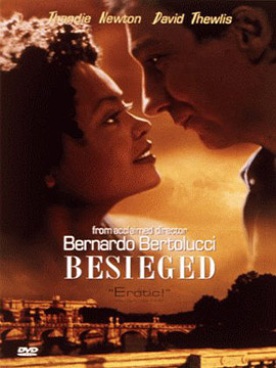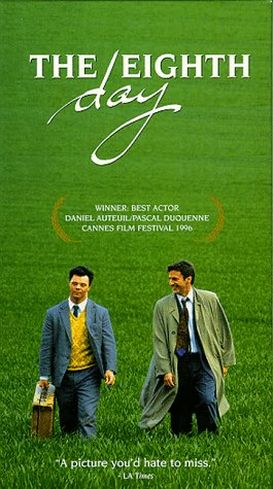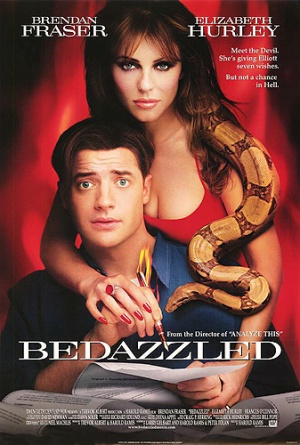Breach
At one point in Breach, Billy Ray’s riveting tale of the capture of the FBI’s Russian mole, Robert Hanssen, the hero, Eric O’Neill (Ryan Phillippe), confides in his superior officer, Agent Burroughs (Laura Linney), about his marital problems. “I would offer you some advice,” she tells him, “but it wouldn’t be much good. I don’t even have a cat.”
He replies by asking her: “Is it worth it? Being an agent? Is it worth what it costs?”
She smiles wanly. “Ask me when we’ve caught him.”
“Him,” of course, is Hanssen (Chris Cooper), and they do catch him, as you will know from having read the papers six years ago. But when they do, neither Mr O’Neill nor the film asks her again if it has been worth the price they pay in loneliness and broken relationships. The implicit answer is no — as it also is (apparently) of the real-life Eric O’Neill. It’s not worth it. Is this a fact of any relevance to understanding why Hanssen did it in the first place? The question appears not to interest Mr Ray, who directed, or Adam Mazer or William Rotko, with whom he wrote the screenplay. Agent Burroughs says to young Eric, “So you’ve just caught the worst spy in American history and now you’re going to walk away?”
“Can you think of a better time to walk away?” he asks.
“No,” she admits. And so Breach resolutely turns its back on the larger and more momentous subject it raises — the subject of patriotism: what it means and what it demands of us.
Whittaker Chambers, who spied for the Russians back in the days when lots of very bright people thought that the “bourgeois” democracies of the West would soon be swept away and replaced by Soviet-style Communism, later repudiated the Soviets and his career as a spy. But he still thought that he was leaving the winning side and going over to the losers. He believed that easy-going, pleasure-loving Americans would be no match for the fanatical dedication of the Communists. If, subsequently, Soviet communism collapsed of its own internal contradictions, it didn’t necessarily mean that Chambers was wrong about the weakness of American will — which is undoubtedly much weaker today than it was when he came forth to denounce his fellow spies in the early days of the Cold War. Then we were prepared to sacrifice more than 30,000 dead to prevent South Korea from being overrun by Communists. Now we are told that a majority of Americans think that a tenth as many is too high a price to pay to defeat another enemy who is (at least) equally dedicated and fanatical.
Like Eric O’Neill, in other words, we’re happy to put our “relationships” (among other things) first and leave the deadly struggle for political and moral hegemony in the world to sad, catless Agent Burroughs and others like her who may be supposed to have a taste for such things. Perhaps our dependence on the all-volunteer military has taught us that patriotism is voluntary too. Like Cindy Sheehan or Senator Jim Webb or the “Not in my Name” protestors, we imagine that we can simply opt out of the war and go back to the way things were before. At best we hold to the draftee’s credo as enunciated here by Mr O’Neill’s father (Bruce Davison), though he is himself a graduate of the Naval Academy: “Get on the boat, do your job, get back home again.” Did Robert Hanssen understand this about us? Did he conclude, like Whittaker Chambers, that only one side in what they used to call the Great Game was really serious about it — and that it wasn’t the side he was supposed to be on?
Perhaps Robert Hanssen — now serving a life sentence along with the Unabomber, Zacarias Moussaoui, shoe-bomber Richard Reid and various other jihadis at the Supermax Federal Prison in Florence, Colorado — doesn’t know the answer himself. But the film-makers would have been better employed in asking it than in speculating about such trivial psychological explanations as his mistreatment as a child by his father, his sexual perversions or his apparently excessive attachment to the Roman Catholic church. To me it was a bit of a surprise that they downplayed the sex and concentrated on the religious and moralistic side of Hanssen’s personality, though neither gets us very far. Hollywood naturally gravitates to religiosity when any misdeeds are in question, as if its very presence in the background must offer some explanation ipso facto.
“I don’t like women in pants,” says Hanssen to O’Neill one day. “Men wear pants. We don’t need any more Hillary Clintons.” Well, OK. Such blatant sexism is only what we might expect from such a Holy Joe. He also has retrograde tastes in music, listening to the popular, big-band music of his father’s generation rather than the stuff his contemporaries favored when young. Such a reactionary must be capable of anything, I guess, though there are plenty of others like him who never sell out their country to the Russians. Why, I myself am partial to the music of the 1930s and 1940s!
To the film’s credit, it recognizes that it has got us no nearer to accounting for the mystery of Hanssen’s treachery — or even whether or not he was a genuine religious believer. Such questions must be forever unanswerable, and the film ends with Hanssen himself saying: “The ‘why’ doesn’t mean a thing, does it?” No, it doesn’t. Treason is treason no matter how it is motivated. Insofar as the movie is just about Robert Hanssen and how he was caught, this is the right way to end it. But insofar as it is about loyalty and treachery and patriotism and how Americans feel about such things — and how these feelings make us behave on the world stage — it is disappointingly inconclusive.
Discover more from James Bowman
Subscribe to get the latest posts to your email.








